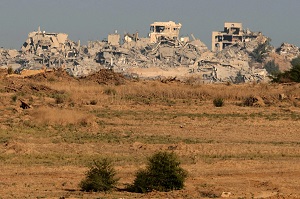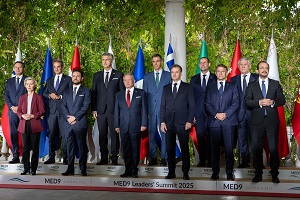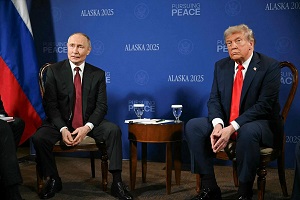Jordan’s economic priorities: From vision to implementation - By Raad Mahmoud Al-Tal, The Jordan Times
Economic growth is no longer just a theoretical goal or a number in official reports. It has become a true measure of a country’s ability to improve the lives of its citizens, particularly when growth creates jobs and reduces poverty. Successful economic policies are not only about achieving higher growth rates; they are about ensuring that growth is inclusive and sustainable, improving income, job opportunities, and quality of life. This highlights the importance of having clear objectives for policymakers. Without a precise vision, policies often cycle through actions without producing real impact.
By this, we mean that goals must be clear and specific for public policymakers, particularly in economic policy. Challenges are constant, and pressures come from all directions. Economic growth is not an end in itself—it is a means to improve people’s lives, increase revenues, and strengthen the state’s ability to manage budget deficits, reduce public debt, and handle debt service.
These goals cannot be achieved by a “caretaker” government. They require a “reform-oriented” government that makes decisions carefully, balancing short-term needs with long-term strategic vision. The process begins by setting clear economic priorities that directly affect growth and employment. Therefore, efficiency in implementation must be the main benchmark in evaluating government performance. In Jordan, the biggest challenge is not money but the ability to execute plans effectively.
Prime Minister Jafar Hassan fully understands this reality. Through field visits covering around 50 per cent of the country’s municipalities during the first year, he sought to assess conditions directly. He also has a strategic vision for the national economy across its various dimensions. He recognizes that the first year of government was foundational, aimed at addressing accumulated problems and long-standing administrative and financial imbalances. His government inherited a persistent fiscal deficit and high public debt, with debt service nearly double the size of capital expenditures, in addition to arrears of approximately 1.7 billion Jordanian dinars that were postponed without settlement.
The second year will be pivotal. The prime minister is focusing on economic projects with high added value and developmental impact linked to national security. A major package of projects, worth nearly $10 billion, will begin next year, concentrated in three main sectors: energy, water, and transport. These sectors are essential for building a strong, resilient economy that enhances citizens’ lives and reduces production costs.
Among the most significant projects are the National Water Carrier, the Jordan Railway linking the industrial port in Aqaba with the phosphate mine in Al-Shidiya and the potash factories in Ghor Al-Safi, the Risha gas pipeline, and other energy and public transport initiatives. These projects are a top investment priority, not just as infrastructure, but as levers for economic growth and production independence.
The greatest challenge for any government lies not in planning but in having the courage to implement plans efficiently and transparently. Real growth is not achieved through slogans or partial measures; it requires the state to transform major projects into tangible improvements in people’s lives. Prime Minister Jafar Hassan understands this fully. He knows that the government now faces a test of execution, a test that will restore trust between citizens and the state and determine whether Jordan can truly move from managing reality to shaping meaningful change.
Raad Mahmoud Al-Tal — Department of Economics — The University of Jordan
Latest News
-
 'Come back quick': Supporters cheer Sarkozy as French ex-leader goes to jail
'Come back quick': Supporters cheer Sarkozy as French ex-leader goes to jail
-
 Trump says MidEast allies ready to 'straighten out Hamas' if asked
Trump says MidEast allies ready to 'straighten out Hamas' if asked
-
 Britain deploys troops to 'Israel' to monitor Gaza ceasefire
Britain deploys troops to 'Israel' to monitor Gaza ceasefire
-
 King attends MED9 Summit, calls for joint action to ensure commitment to Gaza agreement
King attends MED9 Summit, calls for joint action to ensure commitment to Gaza agreement
-
 Lavrov and Rubio discuss Putin-Trump summit, Zelensky seeks invite
Lavrov and Rubio discuss Putin-Trump summit, Zelensky seeks invite